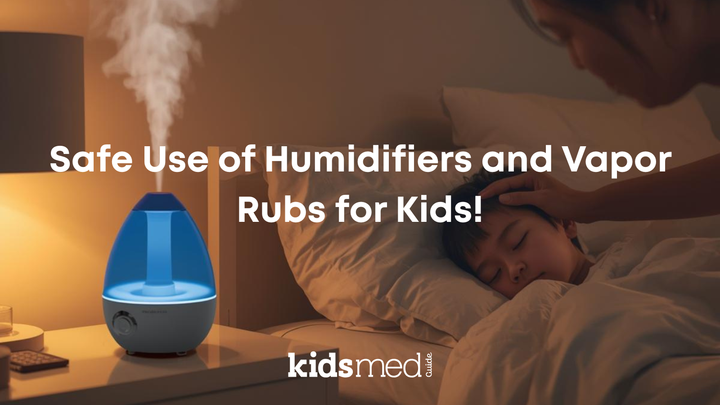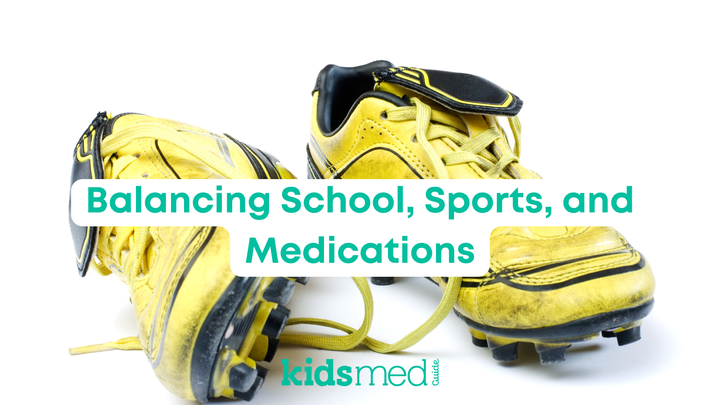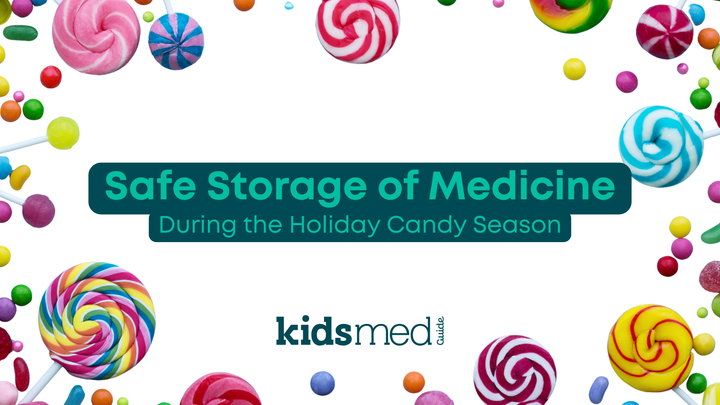Everyday Guide to Kids’ Medications

Navigating over-the-counter medications for kids can be tricky, especially when you’re balancing doses, potential side effects, and what’s safe for each age. This guide is here to help you understand some common children’s medications, recommended doses by age, and important safety tips.
Common Kids’ Medications & What They’re For
- Acetaminophen (Tylenol®)
- Purpose: Pain relief, fever reduction
- Dosing: Based on weight; check the label for guidance. Typically given every 4-6 hours.
- Note: Safe for babies 2 months and older (consult your doctor first for young infants). It’s gentle on the stomach, making it a go-to for kids.
- Ibuprofen (Advil®, Motrin®)
- Purpose: Pain relief, reduces inflammation, fever reduction
- Dosing: Based on weight; check the label for guidance. Typically every 6-8 hours.
- Note: Safe for kids 6 months and older. Give with food, as it can cause mild stomach discomfort.
- Diphenhydramine (Benadryl®)
- Purpose: Mild allergic reactions, hives, allergies
- Dosing: Based on age; do not use for children under 2 years of age, and check with your doctor for children ages 2-6 years.
- Note: May cause drowsiness; avoid combining with other sedatives. Can cause over-excitement in children. Helpful for allergic reactions but check with a pediatrician before the first use. Better options exist for seasonal allergy treatment (loratadine, cetirizine). Read more on our blog: What Drugs Are Safe and Effective for Seasonal Allergy Treatment in Children?
- Saline Nasal Drops
- Purpose: Relieves nasal congestion, helps clear mucus
- Dosing: As needed, can be used for infants and up
- Note: Especially helpful for babies who can’t blow their nose. Use with a bulb syringe to clear nasal passages.
- Simethicone Drops (Mylicon®)
- Purpose: Relieves gas in infants and toddlers
- Dosing: Check the label; typically safe for infants
- Note: Works by breaking up gas bubbles in the stomach, making it easier for babies to pass gas.
- Children’s Cough Syrup
- Purpose: Relieves cough (varieties for dry or productive cough)
- Dosing: Always check age limits; most are only safe for children over 4-6 years
- Note: Choose a syrup based on the type of cough. Avoid adult formulas and check with your doctor for kids under 6. Honey may work just as well or better! (Avoid honey in kids under age 1 year).
Key Tips for Safe Dosing & Use
- Always Use the Right Measuring Device
- Use the measuring tool that comes with the medication, as household spoons aren’t accurate.
- Check Doses by Weight, Not Just Age
- Doses for young kids are often based on weight. If unsure, ask your pediatrician to recommend a specific dose.
- Avoid “Doubling Up” on Ingredients
- Some medications, like cold and flu meds, contain multiple active ingredients. Avoid giving two medications with the same ingredient (e.g., acetaminophen) to prevent accidental overdosing. Always review the active ingredients in each product.
- Store Medications Safely
- Keep all meds out of reach and sight of children, and store them in a cool, dry place (some may require refrigeration).
- Monitor for Side Effects
- Most OTC meds are well-tolerated, but watch for any unusual symptoms (e.g., rash, upset stomach) and stop use if any arise.
Common Medication Interactions to Be Aware Of
- Ibuprofen & Blood Thinners
- Avoid ibuprofen if your child is on any blood-thinning medications (consult your doctor for alternatives).
- Diphenhydramine & Other Sedatives
- If your child is taking medications with a sedative effect, avoid adding diphenhydramine, as it can increase drowsiness.
- Antibiotics & Probiotics
- Antibiotics can affect gut health, so consider adding a probiotic to support digestion. Give probiotics a few hours apart from antibiotics.
When to Call Your Doctor
- For New Medications: Always check with your pediatrician before giving a new medication, especially if your child has never taken it before.
- If Your Child is an Infant: Read product labels for age recommendations, but it’s always good to check in with your pediatrician before giving an infant a medication.
- If Side Effects Appear: Any sign of a reaction—such as swelling, difficulty breathing, or rash—requires immediate medical attention.
- With Dosage Questions: If you’re unsure about dosing based on your child’s age or weight, don’t hesitate to call your doctor or pharmacist.
Remember Over-the-counter medications are useful tools, but they work best when used safely and as directed. When in doubt, it’s always okay to reach out to your healthcare provider with any questions.
Take care,
-Kids Med Guide



